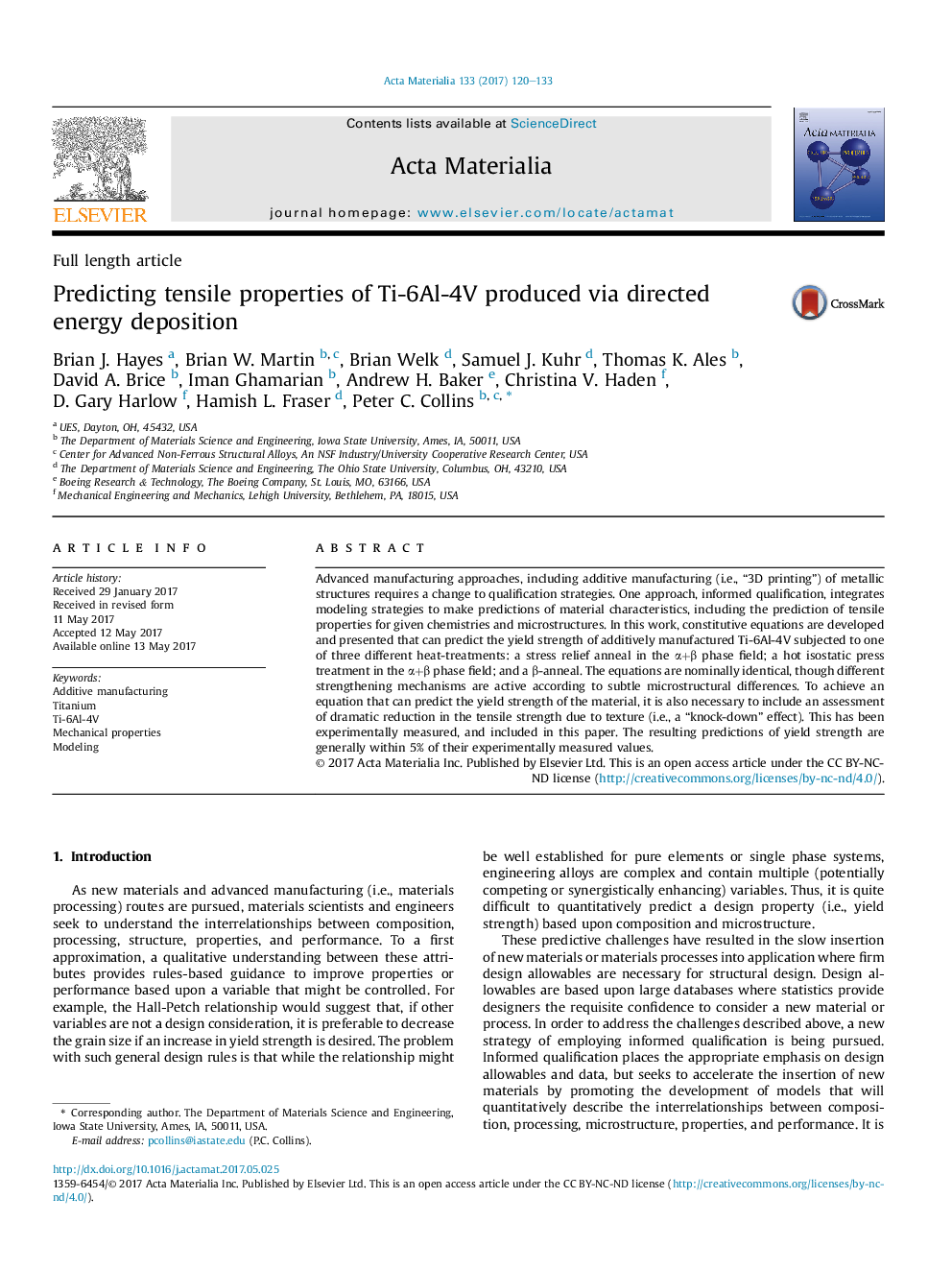| Article ID | Journal | Published Year | Pages | File Type |
|---|---|---|---|---|
| 5436063 | Acta Materialia | 2017 | 14 Pages |
Advanced manufacturing approaches, including additive manufacturing (i.e., “3D printing”) of metallic structures requires a change to qualification strategies. One approach, informed qualification, integrates modeling strategies to make predictions of material characteristics, including the prediction of tensile properties for given chemistries and microstructures. In this work, constitutive equations are developed and presented that can predict the yield strength of additively manufactured Ti-6Al-4V subjected to one of three different heat-treatments: a stress relief anneal in the α+β phase field; a hot isostatic press treatment in the α+β phase field; and a β-anneal. The equations are nominally identical, though different strengthening mechanisms are active according to subtle microstructural differences. To achieve an equation that can predict the yield strength of the material, it is also necessary to include an assessment of dramatic reduction in the tensile strength due to texture (i.e., a “knock-down” effect). This has been experimentally measured, and included in this paper. The resulting predictions of yield strength are generally within 5% of their experimentally measured values.
Graphical abstractDownload high-res image (267KB)Download full-size image
